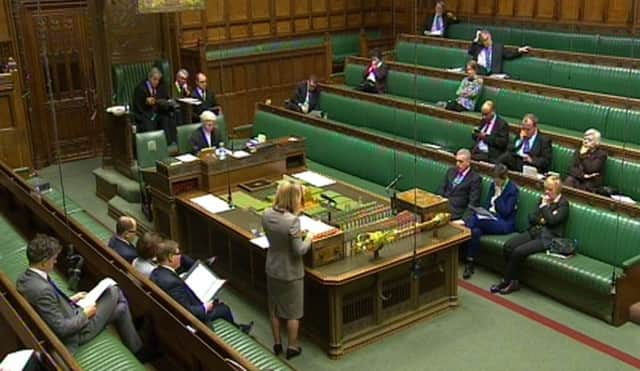Unholy trinity of the three-person embryo


The recent “debate” over three-person embryos showed once again how poorly informed we are about modern science and its techniques. That might be unfortunate, but it shouldn’t be catastrophic. The votes in the Commons and the Lords, however, showed how completely ignorant our legislators are about science in general and genetics in particular – it was catastrophic.
Supporters claimed that the decision was “good news for progressive medicine”. Yet, just because we can do something, doesn’t mean we should. The proposed techniques fail on a number of ethical grounds which should concern us all: They destroy human life, since in order to construct a disease-free embryo, two healthy ones will have to be destroyed. The technique is not a treatment, it does not cure anyone or anything, rather it seeks to remove anyone affected by certain conditions from the human gene pool. Destroying those who have a particular disease and presenting it as a cure or as progress is utterly disingenuous and completely unethical.
Advertisement
Hide AdAdvertisement
Hide AdThere is no question that a small number of families each year have children who suffer from mitochondrial disease. According to the New England Journal of Medicine, around 152 women would be “at risk” each year. Of these, perhaps 10 or 20 might take advantage of the technique. So the number of children “saved” would be incredibly small. Crucially, however, no one would actually be saved. No one is actually treated or cured – instead, if a human being, at its most vulnerable, embryonic stage, is discovered to have the damaged gene, it is destroyed, thus removing it permanently from the human gene pool.
No other country in the world has licensed these procedures. A majority of responses to the Department of Health consultation opposed the proposal. Experts are divided on the advisability of the techniques and even the Human Fertilisation and Embryology Authority have suggested only that the procedures are “not unsafe”.
Mitochondrial replacement isn’t a treatment for mitochondrial disease and doesn’t do anything to help those already living with the disease. What it does do is offer a small number of women the chance to have children who probably won’t have a genetic disorder. It upholds the notion that a perfect baby is every woman’s right, no matter what must be done to achieve one. It is the ultimate example of commodification of humanity, where some (the donor embryos) become the means to another’s end.
It is surprising that a society which increasingly favours and supports natural and “environmentally friendly” products and services should countenance the genetic modification of human beings. How can we object when scientists genetically modify plants but not when they do the same with people?
Following the parliamentary votes, doctors keen to use the, now legal, techniques called on women to donate their eggs for use in the procedure. While this call was reported, its implications were not. In the UK most donor eggs are provided by women undergoing IVF, who can donate half their eggs in return for subsidised private treatment or, in the case of NHS patients, for an additional cycle of treatment, reimbursing egg donors up to £750 per cycle is allowed.
In other words, women who are not patients will receive monetary compensation for their donation. This has serious ethical implications. We choose, rightly, not to pay blood donors for their donations, believing that introducing financial incentives would create conflicts and incentives in a process, which should be driven only by altruism.
We have a shortage of organs available for transplant. Should we start offering patients a discount on medical treatment in exchange for donating a kidney to someone on a waiting list? Or offer cash for organs? And if not, why not?
Organ donors take risks in order to save others. Egg donation is utterly different, the recipient is not sick or unhealthy, not a patient, but rather a consumer, purchasing a woman’s eggs for reproductive or research purposes.The risks from egg donation are real. In the short term, they include stroke, organ failure, infection, cancer, loss of fertility and, in rare instances, death. The longer term risks of cancer or damage to fertility are largely unknown.
Advertisement
Hide AdAdvertisement
Hide AdWe display rank hypocrisy as a society by condemning organ selling, while condoning this exploitative trade.
• Peter Kearney is director of the Catholic Media Office, www.scmo.org
SEE ALSO